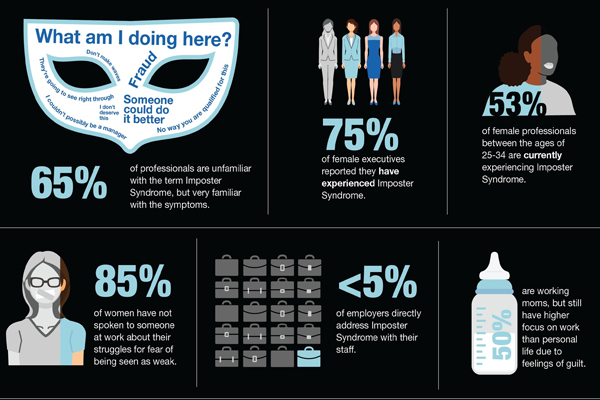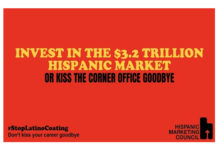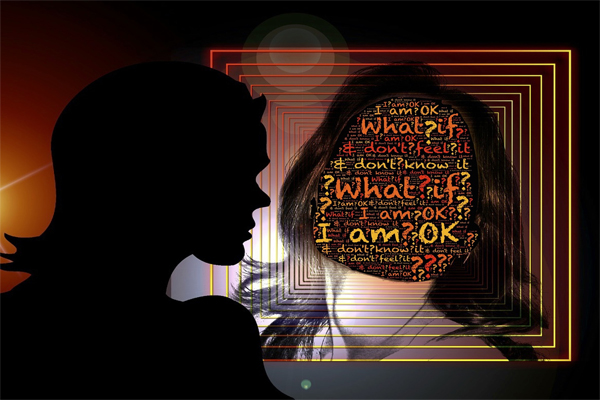Imposter Syndrome, the unsubstantiated belief that you are underqualified for your professional position, affects the majority of the modern workforce today, confirmed InnovateMR’s latest research.
The study carried out by California-based market research technology firm, revealed that 65% of professionals today suffer from Imposter Syndrome. In fact, 75% of female executives surveyed reported experiencing Imposter Syndrome; with younger women particularly affected.
Around 53% of female professionals between the ages of 25-34 are currently experiencing Imposter Syndrome. Additionally, 50% of sufferers are working moms; who also have a higher focus on work than personal life due to feelings of guilt.
The study also noted that 85% of women have not spoken to anyone at work about their struggles; for fear of being seen as weak. Interestingly, less than 5% of employers actually address Imposter Syndrome with their staff. KPMG’s recent Advancing the Future of Women in Business Summit Report also confirmed that Imposter Syndrome is one of the least talked about, yet most prevalent issues facing professionals today; along with mental health. In fact, many young people worldwide are also generally reluctant to confide in managers about mental health issues, in case it negatively impacts their careers.

DAMAGING INTERNAL DIALOGUE
Brittany Nicols, Vice President of Marketing and Communications at InnovateMR, said she relates to these findings. As a high-ranking business leader without a traditional college education, Nicols admits that she spent most of her early professional career needing extra personal justification for her own success. Now able to put a name to the damaging internal dialogue, she said she’s determined to educate professionals; and offer guidance on overcoming Imposter Syndrome.

“Yep, just like Abraham Lincoln, Walt Disney, Bill Gates, Steve Jobs and Mark Zuckerberg, I don’t have a college degree. However, I don’t have billions of dollars in my bank account to free myself from the voices of insecurity and self-doubt wracking my brain,” stated Nicols. “These feelings formed a pattern which would continue. It wasn’t until very recently that I was able to put a name to what I felt: Imposter Syndrome.” Check out Nicols’ blog about her Imposter Syndrome experience here.




































